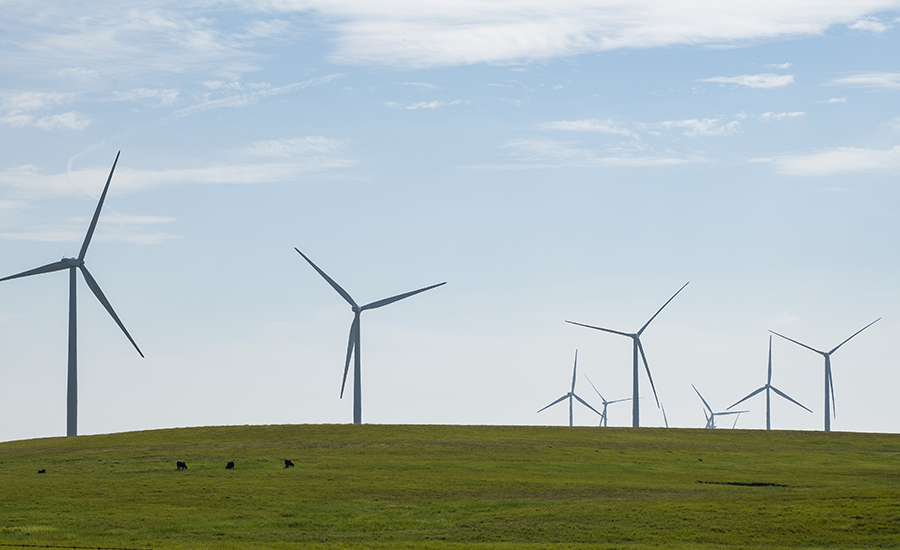Nearly two months after a federal judge ruled that renewables developer Enel Green Power North America must deconstruct 84 land-based wind turbines because it did not secure mineral rights on Osage Nation land in northern Oklahoma, two energy sector attorneys say the unit of an Italy-based company must negotiate with the tribe.
The attorneys, who are not involved in the legal battle, told ENR the case was filled with “yellow flags” and stressed the importance of following requirements that apply to such projects. Jeffrey Porter, chair of the environmental law practice at Mintz Levin in Boston, says companies need to “assess the risk that you are going to get those approvals upfront because it can go to the viability of the projects.”
Enel properly leased the surface rights for the 150-MW project more than a decade ago, but did not also obtain leases from the tribe for subsurface land used for turbine foundations, each of which require an underground base 10-ft deep and 50-ft wide, according to the tribe. That area also includes unobtained oil, natural gas and mineral rights, it contends.
Construction began on the project in 2013 and was completed two years later.
Enel has not said if it plans to appeal the decision and did not respond to queries from ENR. The company has not explained why it did not secure the proper leasing agreements.
Pilar Thomas, a partner in the energy, environment and natural resources practice group at Tucson, Ariz.-based law firm Quarles and Brady, says the case shows the need for energy companies to understand "split estates," a legal term pertaining to property rights designations when land surface and underground area rights are split between two parties.
“Before this case, a lot of people just thought you could use the dirt. But you can’t just use the dirt,” says Thomas, who also teaches Native American energy law at Arizona State University and the University of Arizona.
In the Osage case, Enel, the fourth-largest U.S. renewable energy developer, obtained the surface leases but failed to obtain legal rights from the U.S. Interior Dept. and the Osage Nation Mineral Rights Authority—both of which must approve the underground mineral leases, she explained.
Thomas and Porter say they would be surprised if all 84 turbines were removed, as Judge Jennifer Choe-Groves of the U.S. district court in Tulsa ordered. The idea that the project will be deconstructed seems “much less likely to me,” says Porter. The ruling “has significantly increased leverage of the Osage Nation in the negotiations, which in my view is inevitable," he told online publication Recharge.
Thomas explains that federal court-issued remedy rules are rarely overturned by higher courts. Cost estimates to deconstruct the estimated 1,000-acre wind power installation are more than $300 million, “a lot of money,” she says. With the court ruling, Enel cannot stay on land with mineral leases.
Porter says it would be “premature” for Enel to file an appeal, explaining that it would center on deconstructing the turbines only, per Choe-Groves’ order. He questions if an appellate court would consider such a small part of the case.
“A more effective solution would be a sort of negotiation,” he says.




Post a comment to this article
Report Abusive Comment